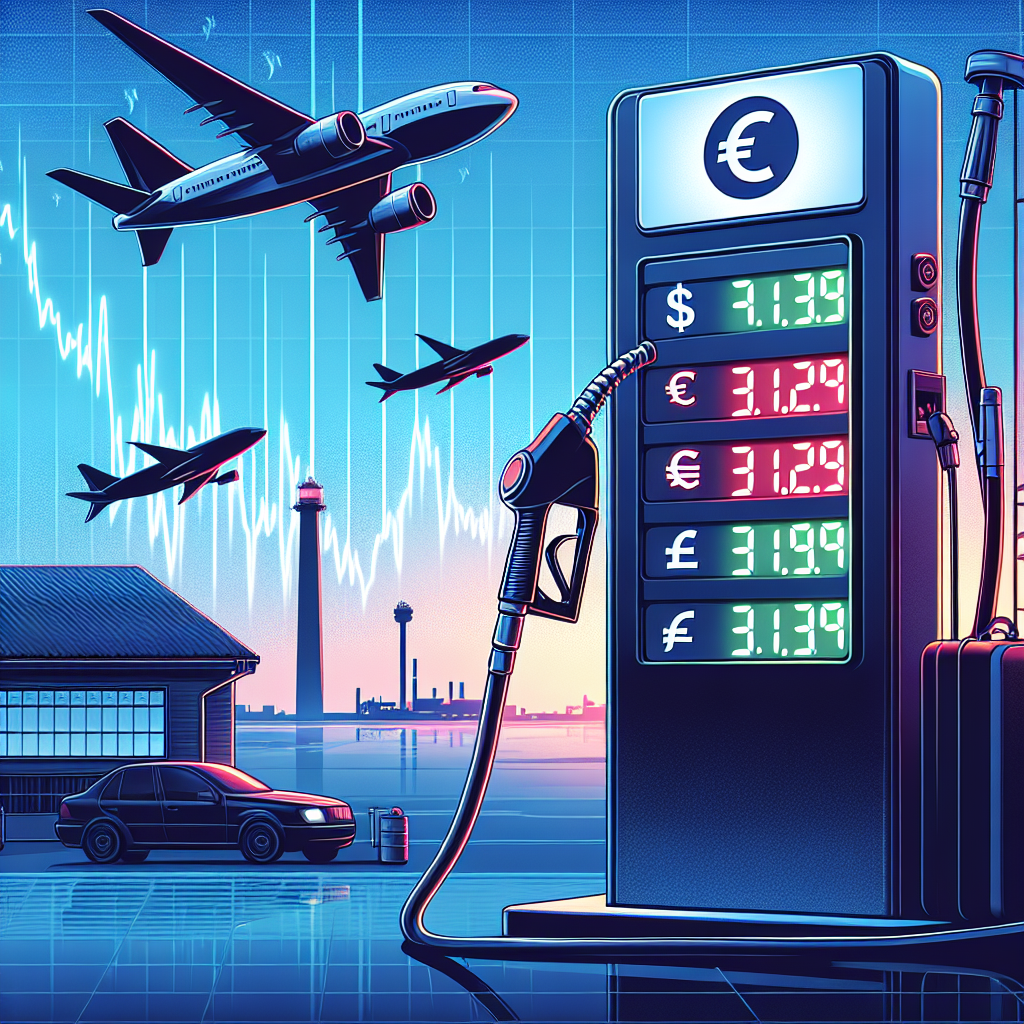IATA Launches SAF Matchmaker Platform to Streamline Sustainable Fuel Deals
This milestone move comes as part of IATA’s broader strategy to support decarbonization efforts by enhancing market access, transparency, and connectivity for SAF producers and consumers.

The International Air Transport Association (IATA) has launched an innovative digital platform, the Sustainable Aviation Fuel (SAF) Matchmaker, to accelerate the development and uptake of sustainable aviation fuel in the global aviation industry. The platform is designed to serve as a centralized marketplace where airlines and SAF producers can efficiently connect, facilitating negotiations and procurement of SAF—a critical component in the industry’s ambitious drive to achieve net-zero carbon emissions by 2050.
This milestone move comes as part of IATA’s broader strategy to support decarbonization efforts by enhancing market access, transparency, and connectivity for SAF producers and consumers.
Addressing Key Barriers to SAF Adoption
The SAF Matchmaker has been developed with a clear purpose: to solve three major challenges slowing the scale-up of SAF in global aviation—efficiency, connectivity, and visibility.
-
Efficiency: By providing a centralized, no-cost interface for SAF procurement, the platform eliminates the need for intermediaries or complex matchmaking processes. It streamlines the identification of potential SAF deals, thereby speeding up the transition to sustainable fuels and reducing transactional friction.
-
Connectivity: SAF producers and suppliers can list both available and upcoming SAF volumes, while airlines can express interest in current or future supply needs. When a match is identified, parties are encouraged to take negotiations offline to finalize specific terms, such as volume, price, logistics, and payment conditions. This builds a bridge between supply and demand in what has historically been a fragmented and opaque market.
-
Visibility: Each SAF listing includes comprehensive data such as production volumes, feedstock type, production technology, geographic location, associated greenhouse gas emission reductions, and regulatory compliance with schemes like the Carbon Offsetting and Reduction Scheme for International Aviation (CORSIA) and the European Union’s Renewable Energy Directive (EU RED). This level of detail enables informed decision-making and strengthens confidence in sustainability claims.
A Step Toward a Transparent SAF Market
“To reach net zero carbon emissions by 2050, we need an accessible, transparent, liquid, and efficient SAF market,” stated Marie Owens Thomsen, IATA’s Senior Vice President Sustainability and Chief Economist. “The SAF Matchmaker is another example of the work that IATA is putting in place to create a fully functioning market for SAF. It will accelerate SAF uptake by reducing the costs and complexity that airlines face when searching for SAF suppliers.”
The platform is hosted on the Aviation Energy Hub, IATA’s dedicated digital ecosystem that provides tools and data services supporting aviation energy management. SAF Matchmaker is currently open to airline operators and SAF producers, with plans to expand access in the future to include other SAF buyers such as logistics companies, fuel traders, and non-aviation corporations seeking to decarbonize their transport-related emissions.
Supporting Spot and Long-Term Agreements
The platform accommodates both spot purchases and long-term offtake agreements, giving users flexibility to pursue either one-time transactions or strategic procurement relationships. This is particularly significant for airline operators looking to secure future SAF volumes in a tight market.
Long-term offtake agreements are seen as instrumental in de-risking investment in SAF production, helping producers attract financing and scale operations, while spot deals allow airlines to meet near-term carbon reduction goals and compliance mandates.
Growing Global Demand for SAF
SAF is widely acknowledged as the most viable near-term solution to decarbonize the aviation sector. It can reduce lifecycle carbon emissions by up to 80% compared to conventional jet fuel and is compatible with existing aircraft and fueling infrastructure. However, SAF currently accounts for less than 0.5% of total aviation fuel consumption, largely due to high production costs, limited supply, and underdeveloped markets.
As governments intensify regulatory pressures and airlines commit to aggressive sustainability targets, the demand for SAF is expected to rise exponentially. Platforms like SAF Matchmaker play a crucial role in scaling up supply chains, encouraging innovation in feedstocks and production methods, and opening new market channels.
Looking Ahead: Expanding Access and Capabilities
IATA has announced that the SAF Matchmaker platform will gradually expand to allow participation from non-aviation SAF buyers, including freight forwarders, corporate travel buyers, and industrial firms. These stakeholders increasingly seek to offset transport emissions through book-and-claim systems or direct fuel purchases as part of their net-zero strategies.
The development roadmap also includes adding data integration with emission tracking systems, enabling SAF transactions to be linked to carbon credit registries and sustainability certifications.
The SAF Matchmaker marks a major leap forward in aviation’s decarbonization journey. By removing barriers to procurement and offering a user-friendly, data-rich interface for buyers and suppliers, IATA is setting the foundation for a vibrant and trusted SAF market. The platform empowers airlines to make more informed, cost-effective sustainability decisions and gives SAF producers access to a wider pool of potential customers, fostering investment and innovation in cleaner aviation fuel technologies.
As the race to net zero intensifies, digital solutions like the SAF Matchmaker will be vital in aligning global industry efforts, policy frameworks, and climate goals.










